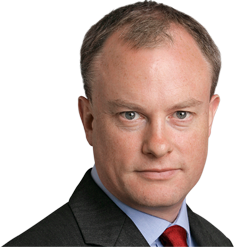I run the Government’s communication strategy, the management of the Cabinet Office and the No 10 team, and lead 3,100 government communications professionals.
Monday starts with the Cabinet Office "huddle", where each team talks through their priorities for the week. As the repercussions from Woolwich play out, our colleagues from national security update us.
Colleagues in the Efficiency and Reform Group are planning for a savings announcement. And the "great" team are sending branded buses round the Big Apple.
On Tuesday in Bristol, I’m at the NHS Blood and Transplant service. The comms team there are encouraging the public to donate blood andorgans. It’s a reminder that the work we do really can save lives. Think!, Change4Life and Fire Kills are other examples. Effective campaigns delivered by brilliant in-house communicators with committed agencies.
Wednesday starts with a run along the Thames, over Chelsea and back over Vauxhall Bridge, round the Battersea Power Station and the site for the new US embassy. Then a training session for people working for education and skills agencies. One young communicator reminds me that her friends communicate by Tweets, texts and pictures. Increasingly, our target audience is also using these channels.
Next is the Civil Service Reform Board. Reform means better-skilled, digital and united work across the Government. That’s no different for communicators. In fact, we should be leading the way.
Thursday – my wife calls to tell me that Georgia has won the local round of the schools tennis competition and is through to the London under-nine finals in July, which is great news.
On Thursday evening, the most important meeting of the week – I chair the department Directors of Comms. The "value for money" theme continues. We estimate that the controls and frameworks we’ve put in place aresaving about £3 million a year. Do we think that has affected the quality or quantity of the work? Are we usingthe money effectively? Is every pound working hard for the taxpayer? I want exceptional, demonstrably effective, efficient campaigns delivered by capable and educated communicators.
Our meeting moves on to the future: how we develop a stronger singleprofession, how best to pool or share services, what we need to do to improve business planning. And then a thoughtful discussion about commemorating World War One.
On Friday, a meeting with the Government Procurement Service, partly at the suggestion of 北京赛车pk10 readers. Agencies want to know we have the right people making decisions about who works on government campaigns. Our team work with professionals in comms, marketing andadvertising to make sure we can look taxpayers in the eye and say we delivered brilliant campaigns that were also value for money. There’s more we can do, but we’re getting there.
Finally, a meeting to develop new partnerships. We want to work more with external organisations and we’ve recently ensured our guidelines enable us to do so.
Alex Aiken is the executive director of government communications


